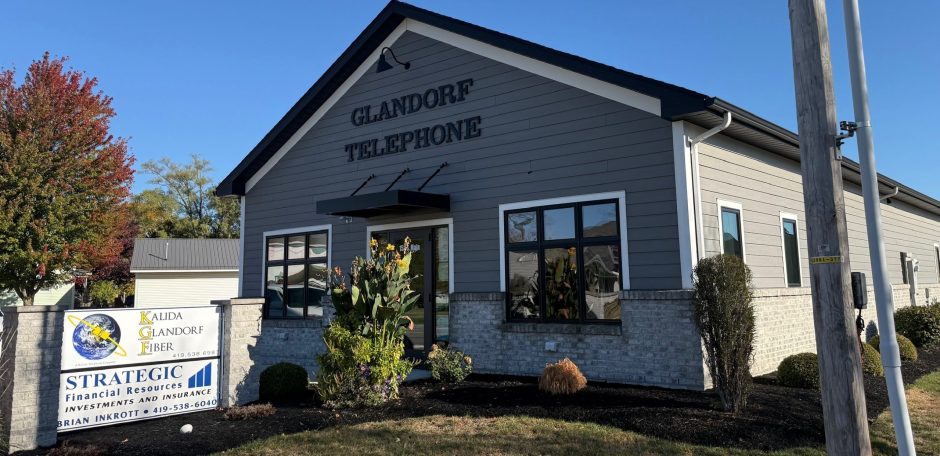Kalida Glandorf Fiber
A Kalida Telephone Company
Broadband Information
Internet service levels & speeds
Your Service Capability Speed (Internet Speed) is the rate we deliver internet traffic to and from your home. Many factors affect the internet service you purchase from Kalida Glandorf FI-Optics and influence the actual internet speed you experience at any given time.
Data and content you send or receive travels many paths before reaching its final destination and being returned back to you:
~ Through the wiring in your home.
~ Between your connected computers and devices and your router or gateway.
~ Through the Network Device located outside your home to our network.
~ From our network to the internet, which has millions of private networks.
~ Through various Internet Service Providers (ISP) networks used by websites to send you content.
Internet speed
Each internet service option has a different capability speed range. The term speed is used to describe the rate a particular broadband internet access service can transmit data. This capacity is measured by the number of kilobits (Kbps), megabits (Mbps), or gigabits (Gbps) that can be transmitted in one second.
Some applications do not require higher speeds to function optimally. Examples of these applications include sending short emails without attachments or basic Web browsing. Other activities perform better with higher-speed services. This includes transferring large data files or streaming high-definition video.
Lower speeds may not be suitable for some applications, particularly those involving real-time or near-time, high-bandwidth uses such as streaming video or video conferencing.
Home network
Many factors inside your home affect the rate you send or receive internet data. These include:
~ Age of wiring inside your home.
~ Distance between the gateway and your device.
~ Objects that block the gateway and your device. Objects such as metals and mirrors.
~ Age and type of gateway or router.
~ Number of devices connected to the gateway.
~ Type of connection used.
Connection types
You can access your internet through a wired Ethernet connection or a Wi-Fi connection.
~ Wired connections use Cat5e or Cat6 cables plugged into the Ethernet port on your wall or gateway. These connections provide the best performance, consistently.
~ Wi-Fi connections give you flexibility to move throughout your home, but it is not as fast as a wired connection. You get the best Wi-Fi signal closest to your gateway, with fewer devices running.
Type and number of devices
Internet devices come in all shapes and sizes. Each device has a maximum internet speed it can reach. But that speed might not be as fast as your possible internet level. For example, if your laptop only supports 100Mbps and you have a 1 Gbps internet service, your laptop will not be able to reach the maximum speed.
When devices connect to your network, they each use a portion of your allotted speed. Multiple devices sharing your internet connection can affect the speed each device experiences.
Other networks and websites you visit
Even though you purchase a specific speed, the websites you interact with may not provide their services at the same speeds. Things to consider as you surf websites:
~ Websites may not have the same network speeds as you.
~ Website server capacity can impact your Internet speeds.
~ Website owners may use other ISPs to deliver content back to you. These network serving arrangements can also impact your Internet speed.
~ Visiting sites during their peak hours may also result in slower speeds.
Additional impacts on internet speed performance and Speed Test results
As noted, may factors can affect service speeds and speed test results. These include:
~ Customer equipment
~ Connection type
~ Network issues
~ Internet usage
In addition, protocol overheads, such as IP overhead in IP technology, diminish internet speed and speed test results. Overhead(s) means various control and signaling data (e.g., transmission control protocol (TCP)) required to achieve the reliable transmission of Internet access data.
Speed Test
A speed test will help measure your throughput speeds and gauge the maximum performance of your internet service at the time of measurement. Testing speed over a wired connection ensures you have the most accurate reading of your internet service. Wi-Fi delivers good, but slower speeds due to the wireless technology. We recommend using www.getmyspeed.com. You can do this with wired and Wi-Fi connection. You may find your router is slowing the speed down. If you find that your speeds are not performing as you like, please callus at 419-538-6987. After hours technical support can be reached at 1-800-743-5707.
